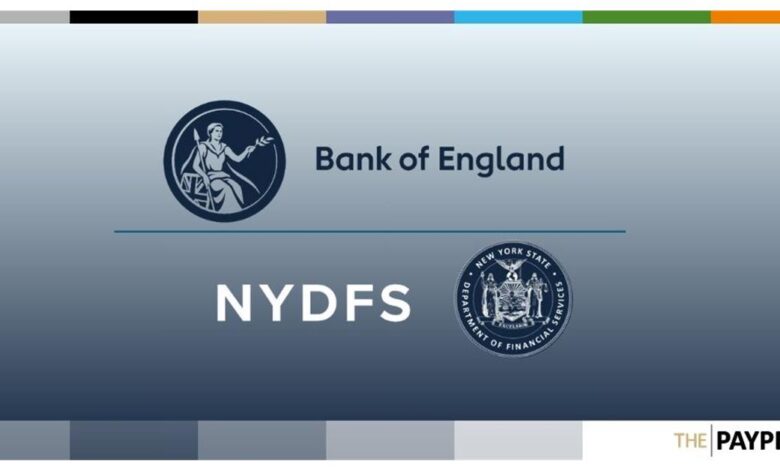NYDFS collaborates with the Bank of England on crypto regulation

This collaboration will facilitate staff exchange, allowing NYDFS to exchange senior staff experienced in digital assets with those at the Bank of England, aiming to improve regulatory alignment and share expertise.
Exchanges with the TRE program, beginning with the Bank of England in February, will last at least six months.

The Transatlantic regulatory exchange
The UK and US differ significantly in their approaches to digital currencies. The Bank of England continues exploring a Central Bank Digital Currency, while the US administration resists a government-backed digital dollar. The exchange programme aims to help both regulators gain deeper insights into navigating the challenges of the crypto landscape.
Following TRE, participants are expected to return to New York with additional knowledge of regulating financial services, including digital assets.
The potential results of the programme are unclear, but the regulators expect that those involved will learn more about how a foreign agency handles issues with emerging payments and digital assets. NYDFS officials note that this exchange is critical for regulatory harmonisation.
The Bank of England has been exploring the implementation of a Central Bank Digital Currency, while the incoming US presidential administration has suggested opposing the launch of any government-backed digital dollar.
NYDFS’ Superintendent advised crypto firms to communicate with regulators before launching new services.
Crypto regulations in the UK vs the US
In the UK, the Prudential Regulation Authority, the central bank’s regulatory arm, is expected to monitor firms’ exposure to cryptocurrencies and propose rules related to digital assets, demanding full disclosure of any current or future exposure up to September 2029 by March 2025. This will enable the bank to monitor financial stability, calibrate the treatment of crypto exposures, and analyse the relative costs and benefits of different policy options.
The NYDFS is responsible for overseeing crypto regulation in New York, where several companies are taking advantage of the area’s business and regulatory environment. The company was responsible for the implementation of the BitLicense scheme in 2015, approving projects such as Ripple Labs’ RLUSD stablecoin in December 2024. The NYDFS approval process experienced some delays, with Ripple initially anticipating a decision by 4 December 2024.
Source link



